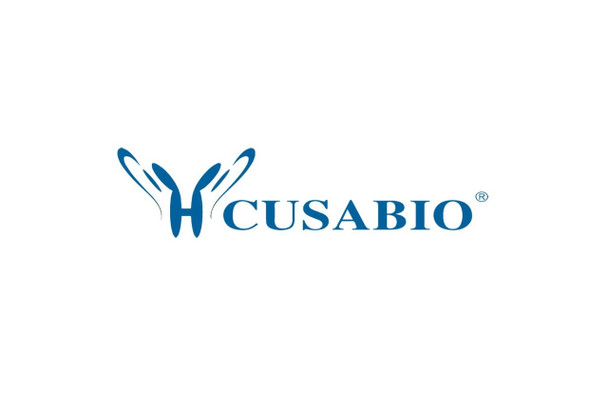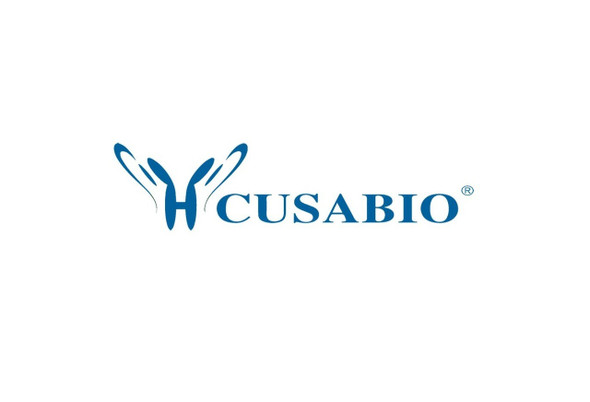Cusabio Human Recombinants
Recombinant Human Maternal embryonic leucine zipper kinase (MELK), partial | CSB-EP013692HU1
- SKU:
- CSB-EP013692HU1
- Availability:
- 3 - 7 Working Days
Description
Recombinant Human Maternal embryonic leucine zipper kinase (MELK), partial | CSB-EP013692HU1 | Cusabio
Alternative Name(s): Maternal embryonic leucine zipper kinase (EC:2.7.11.1);hMELK;Protein kinase Eg3;pEg3 kinase;Protein kinase PK38;hPK38;Tyrosine-protein kinase MELK
Gene Names: MELK
Research Areas: Cell Biology
Organism: Homo sapiens (Human)
AA Sequence: MKDYDELLKYYELHETIGTGGFAKVKLACHILTGEMVAIKIMDKNTLGSDLPRIKTEIEALKNLRHQHICQLYHVLETANKIFMVLEYCPGGELFDYIISQDRLSEEETRVVFRQIVSAVAYVHSQGYAHRDLKPENLLFDEYHKLKLIDFGLCAKPKGNKDYHLQTCCGSLAYAAPELIQGKSYLGSEADVWSMGILLYVLMCGFLPFDDDNVMALYKKIMRGKYDVPKWLSPSSILLLQQMLQVDPKKRISMKNLLNHPWIMQDYNYPVEWQSKNPFIHLDDDCVTELSVHHRNNRQTMEDLISLWQYDHLTATYLLLLAKKARGKPVRLRLSSFSCG
Source: E.coli
Tag Info: N-terminal 10xHis-tagged and C-terminal Myc-tagged
Expression Region: 1-340aa
Sequence Info: Partial
MW: 44.3 kDa
Purity: Greater than 85% as determined by SDS-PAGE.
Relevance: Serine/threonine-protein kinase involved in various processes such as cell cycle regulation, self-renewal of stem cells, apoptosis and splicing regulation. Has a broad substrate specificity; phosphorylates BCL2L14, CDC25B, MAP3K5/ASK1 and ZNF622. Acts as an activator of apoptosis by phosphorylating and activating MAP3K5/ASK1. Acts as a regulator of cell cycle, notably by mediating phosphorylation of CDC25B, promoting localization of CDC25B to the centrosome and the spindle poles during mitosis. Plays a key role in cell proliferation and carcinogenesis. Required for proliferation of embryonic and postnatal multipotent neural progenitors. Phosphorylates and inhibits BCL2L14, possibly leading to affect mammary carcinogenesis by mediating inhibition of the pro-apoptotic function of BCL2L14. Also involved in the inhibition of spliceosome assembly during mitosis by phosphorylating ZNF622, thereby contributing to its redirection to the nucleus. May also play a role in primitive hematopoiesis.
Reference: "Involvement of maternal embryonic leucine zipper kinase (MELK) in mammary carcinogenesis through interaction with Bcl-G, a pro-apoptotic member of the Bcl-2 family." Lin M.L., Park J.H., Nishidate T., Nakamura Y., Katagiri T. Breast Cancer Res. 9:R17-R17(2007)
Storage: The shelf life is related to many factors, storage state, buffer ingredients, storage temperature and the stability of the protein itself. Generally, the shelf life of liquid form is 6 months at -20?/-80?. The shelf life of lyophilized form is 12 months at -20?/-80?.
Notes: Repeated freezing and thawing is not recommended. Store working aliquots at 4? for up to one week.
Function:
Involvement in disease:
Subcellular Location:
Protein Families:
Tissue Specificity:
Paythway:
Form: Liquid or Lyophilized powder
Buffer: If the delivery form is liquid, the default storage buffer is Tris/PBS-based buffer, 5%-50% glycerol. If the delivery form is lyophilized powder, the buffer before lyophilization is Tris/PBS-based buffer, 6% Trehalose, pH 8.0.
Reconstitution: We recommend that this vial be briefly centrifuged prior to opening to bring the contents to the bottom. Please reconstitute protein in deionized sterile water to a concentration of 0.1-1.0 mg/mL.We recommend to add 5-50% of glycerol (final concentration) and aliquot for long-term storage at -20?/-80?. Our default final concentration of glycerol is 50%. Customers could use it as reference.
Uniprot ID: Q14680
HGNC Database Link: N/A
UniGene Database Link: N/A
KEGG Database Link: N/A
STRING Database Link: N/A
OMIM Database Link: N/A










